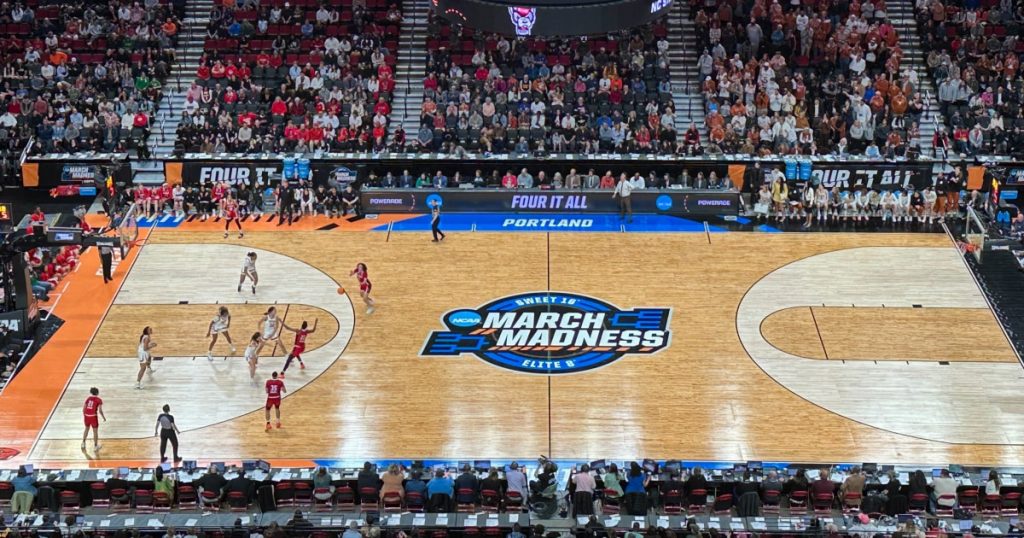The women’s NCAA Tournament at Moda Center in Portland had a discrepancy in the 3-point line distance at each end of the court that went unnoticed through four games before Texas and North Carolina State were informed of the issue ahead of their Elite Eight matchup. The teams decided to play with the mismatched 3-point lines rather than delay the game, with N.C. State beating Texas 76-66 to advance to the Final Four. The NCAA announced that the lines would be measured and corrected before the next game between Southern California and UConn.
This court issue was another distraction for the NCAA amid an exceptional women’s tournament where other issues have taken the spotlight. These included a referee being pulled out at halftime in the first round, Utah facing racist harassment, a player being forced to remove a nose ring, and a coach threatening to sue over an unpublished profile. The court issue in Portland added to the challenges faced by the tournament, with Texas coach Vic Schaefer remarking that such incidents have given the impression that they only happen in women’s basketball.
The discrepancy in the 3-point line distance was discovered during pregame warmups before the Elite Eight game, with the top of the key to the 3-point line being too short at one end of the court. The coaches and officials decided to play the game as scheduled rather than delay it, as a delay would have taken at least an hour and potentially affected the broadcast schedule on ABC. Players were not aware of the issue, and it did not seem to impact their performance, with N.C. State’s Aziaha James making a career-high seven 3-pointers during the game.
While the NCAA did not provide detailed information, it appeared that one 3-point line near the top of the key was about 6 inches closer to the basket than at the opposite end of the floor. Data showed that teams struggled with the closer 3-point line, with a lower shooting percentage on that end compared to the end with the correct distance. Despite this issue, the focus for teams at the tournament was on game plans and performance rather than the court conditions, as highlighted by Baylor coach Nicki Collen’s post on social media after her team’s loss.
The NCAA promised to investigate how the error occurred and ensure the accuracy of court markings for future games. The women’s tournament, while facing challenges and distractions, has showcased exceptional play and talent throughout. Despite issues like the court discrepancy, teams have been able to adapt and continue competing at a high level. The focus remains on the teams, the players, and the games themselves, as the NCAA works to address and prevent similar issues in the future.


